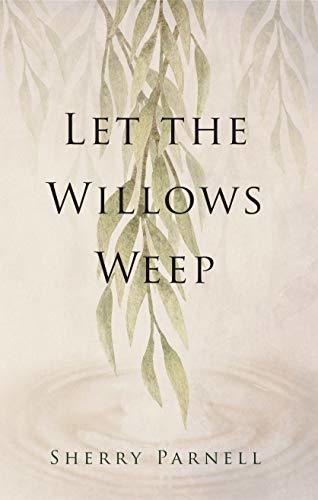Sherry Parnell's Blog - Posts Tagged "readership"
What the Book--and Readers--Deserve
“When the bones are good, the rest don’t matter.” –Maren Moris
I originally published my novel Let the Willows Weep in 2010. Although the book was the best version it could be at the time, I always believed a better version was possible. I knew the bones were good; the story was good, but the rest needed work, and I believe that the “rest” does matter. A rigorous editing of the prose, a cleaner layout and a better cover design is what this book needed and deserved.

So, early last spring I sent my manuscript to a professional editor. Was it unnerving to have my work thoroughly scrutinized and critiqued? Yes. Was it worth it? Absolutely. As writers, we often become too close to our characters, the world we create for them, and the words that form the heartbeat of it all to see the flaws and mistakes. A good editor can spot the weaknesses and suggest changes while still maintaining the writer’s voice. The trick is listening to what they say.
It is sometimes difficult for writers to hear criticism of their work, but I think that for me the passage of time from when I’d originally published the book to this new round of revisiting the text allowed me some separation, and my strong desire to improve my book quieted my ego.
Viewing my work through someone else’s eyes actually improved my vision for my book. I gained a new perspective, which allowed me to add more dimension to my characters and more depth to the plot.
One of my editor’s primary suggestions was that I needed to quicken the pace to draw the readers into the story from the beginning. She also suggested that I make the readers a part of the narrative—"show, don’t tell.” It is the foundation of what we writers are taught and preach, but sometimes we need to be reminded. A good editor will do just that.
These editorial recommendations didn’t compromise my writer’s voice nor undermine the integrity of my story; instead her professional suggestions enhanced my work, making Let the Willows Weep what it needed to be not just for me as the writer but, more importantly, for you as the reader.
As an avid reader myself, I understand the importance of a well-told story, but I also know the importance of how that story is conveyed and packaged. We do judge books by their covers and no one enjoys reading a book with typos, weird fonts, or strange layouts.
So, even when the bones of the book--the story--is good the rest does matter.
And I am so excited to now present to my readership Let the Willows Weep. New and improved, this book is now the best version it, and the readers, deserve for it to be.
I originally published my novel Let the Willows Weep in 2010. Although the book was the best version it could be at the time, I always believed a better version was possible. I knew the bones were good; the story was good, but the rest needed work, and I believe that the “rest” does matter. A rigorous editing of the prose, a cleaner layout and a better cover design is what this book needed and deserved.

So, early last spring I sent my manuscript to a professional editor. Was it unnerving to have my work thoroughly scrutinized and critiqued? Yes. Was it worth it? Absolutely. As writers, we often become too close to our characters, the world we create for them, and the words that form the heartbeat of it all to see the flaws and mistakes. A good editor can spot the weaknesses and suggest changes while still maintaining the writer’s voice. The trick is listening to what they say.
It is sometimes difficult for writers to hear criticism of their work, but I think that for me the passage of time from when I’d originally published the book to this new round of revisiting the text allowed me some separation, and my strong desire to improve my book quieted my ego.
Viewing my work through someone else’s eyes actually improved my vision for my book. I gained a new perspective, which allowed me to add more dimension to my characters and more depth to the plot.
One of my editor’s primary suggestions was that I needed to quicken the pace to draw the readers into the story from the beginning. She also suggested that I make the readers a part of the narrative—"show, don’t tell.” It is the foundation of what we writers are taught and preach, but sometimes we need to be reminded. A good editor will do just that.
These editorial recommendations didn’t compromise my writer’s voice nor undermine the integrity of my story; instead her professional suggestions enhanced my work, making Let the Willows Weep what it needed to be not just for me as the writer but, more importantly, for you as the reader.
As an avid reader myself, I understand the importance of a well-told story, but I also know the importance of how that story is conveyed and packaged. We do judge books by their covers and no one enjoys reading a book with typos, weird fonts, or strange layouts.
So, even when the bones of the book--the story--is good the rest does matter.
And I am so excited to now present to my readership Let the Willows Weep. New and improved, this book is now the best version it, and the readers, deserve for it to be.
Published on November 04, 2019 10:46
•
Tags:
book, editing, literary-fiction, publishing, re-publication, readership, revising, story



